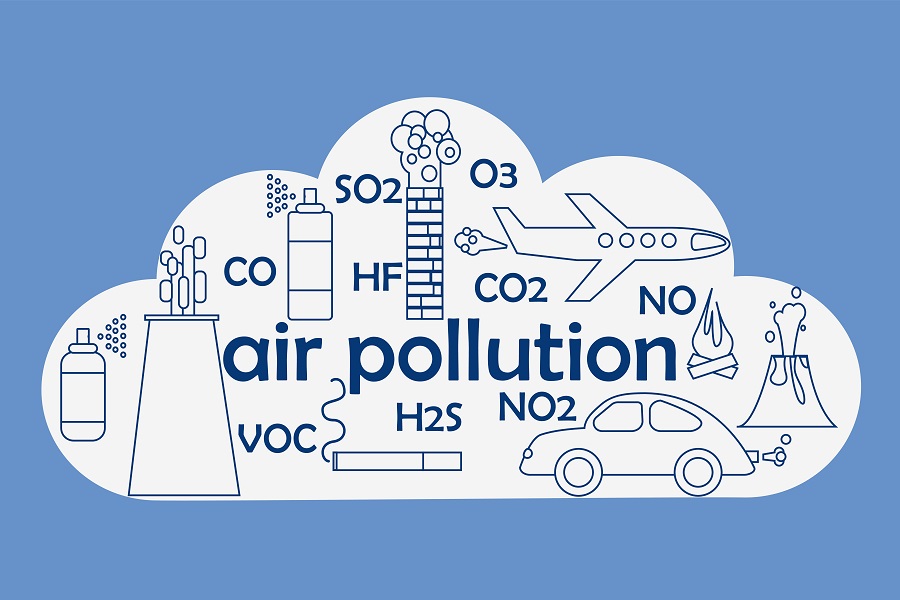Among the many different kinds of air pollutants negatively affecting the air all of us breathe, there are six very common, and harmful air pollutants to which we need to pay significant attention. In fact, the Clean Air Act requires the Environmental Protection Agency, or EPA, to set National Ambient Air Quality Standards for the six most prevalent, and dangerous, air pollutants. The six commonly found air pollutants, which are also known as “criteria pollutants,” are found all over the United States, which is one of many aspects of why they are so hazardous. The six common air pollutants are:
- Particle Pollution (particulate matter)
- Ground-level ozone.
- Carbon monoxide.
- Sulfur oxides.
- Nitrogen oxides.
- Lead.
These pollutants can have a terrible impact on the health of anyone who is exposed, which means every single person in the entire country. The pollutants can also protract a horrible affectation on the environment, and can cause property damage.
Of the six pollutants named in the previous paragraph, particle pollution and ground-level ozone are the most widespread health threats. The Environmental Protection Agency calls these two pollutants “criteria” air pollutants, because the EPA regulates these prevailing pollutants by creating human health based and/or environmentally based criteria (science-based guidelines) for setting permissible levels. The set of limits deemed permissible for exposure, based on securing optimal human health, is called the primary standard. The name for another set of limits intended to prevent environmental and property damage, which is mostly used for the other for most common air pollutants, as well as other moderately worrisome air pollutants, is known as the secondary standard.
To remain cognizant of the affects of each of these six common air pollutants, the EPA tracks two kinds of air pollution trends. The first trend involves the air concentration, which is based on actual measurements of pollutant concentrations in the ambient, or outside air at selected monitoring sites throughout the country.  The second involves the emissions of the air pollutants, which is based on engineering estimates of the total tons of pollutants released into the air each year. Despite the progress made in the last few decades, millions of people continue to live in counties throughout the United States with monitor data showing unhealthy air for one or more of the six common air pollutants. This is alarming for two reasons: the first being that not enough information is in circulation concerning these health hazards, or not enough of it has been made public knowledge. The second concern, which is possibly graver, is that people simply do not concern themselves enough with how potentially devastating these air pollutants can be to themselves, and to the environment.
The second involves the emissions of the air pollutants, which is based on engineering estimates of the total tons of pollutants released into the air each year. Despite the progress made in the last few decades, millions of people continue to live in counties throughout the United States with monitor data showing unhealthy air for one or more of the six common air pollutants. This is alarming for two reasons: the first being that not enough information is in circulation concerning these health hazards, or not enough of it has been made public knowledge. The second concern, which is possibly graver, is that people simply do not concern themselves enough with how potentially devastating these air pollutants can be to themselves, and to the environment.
For the EPA’s most recent evaluation of air pollution trends for these six most common pollutants, you can consult with a professional from Ecolink, who can provide further information.















